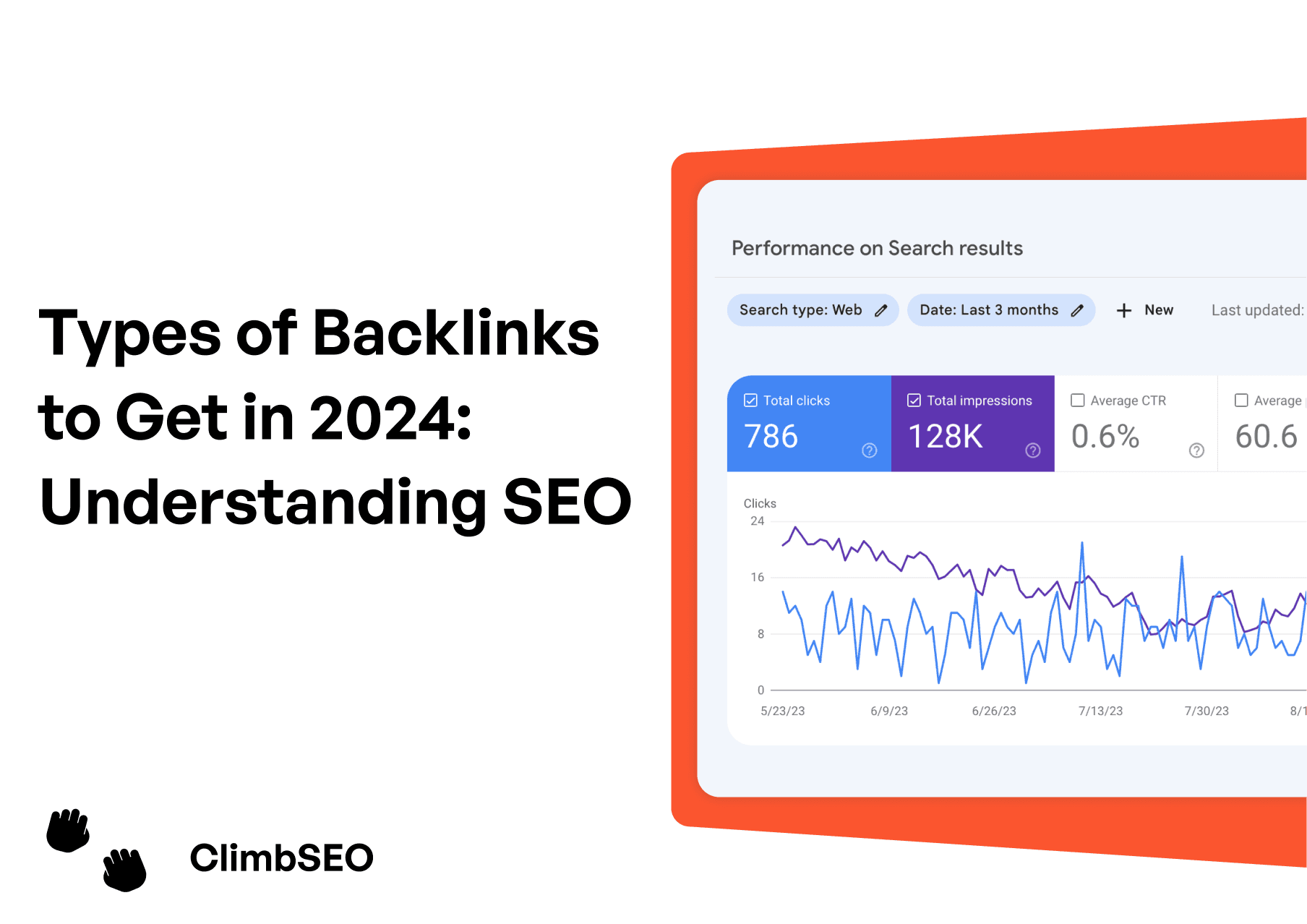Jun 30, 2023
Why Is User Friendliness Important to SEO
Why Is User Friendliness Important to SEO
Why Is User Friendliness Important to SEO
Why Is User Friendliness Important to SEO

Finley Cope
Finley Cope
Finley Cope
Finley Cope
Search engine optimisation (SEO) is essential for driving traffic to websites and increasing online visibility. While traditional SEO practices focus on keyword optimisation, backlink building, and technical enhancements, an often overlooked yet vital aspect is user friendliness.
Here’s why user friendliness is crucial for SEO success:
Enhanced User Experience (UX) Search engines like Google prioritise sites that offer superior user experiences, interpreting high engagement and low bounce rates as indicators of quality.
Increased Dwell Time Dwell time is the amount of time a visitor spends on a webpage before returning to search results, it's a significant SEO factor. When users stay longer on a site, it signals to search engines that the content is relevant and valuable, which can improve rankings.
Mobile Optimisation With the growing use of mobile devices, having a mobile-friendly website is no longer optional. A user-friendly site that adapts seamlessly to various screen sizes and provides a smooth mobile experience will rank higher in search results, capturing a larger audience.
Improved Accessibility User friendliness also involves making a website accessible to all users, including those with disabilities. Implementing features like alt text for images, proper heading structures, and keyboard navigability ensures that a wider audience can interact with your site.
Easier Content Consumption Finally, user-friendly websites make content consumption straightforward and enjoyable. Clear fonts, concise writing, and logical content structures help users find and absorb information easily. When users find content useful and easy to read, they are more likely to stay longer and return in the future, both of which are positive signals for SEO.
About Our Tools
Our on-page checkers improves your website user friendliness by optimising
Page Speed Ensuring your site loads quickly for a optimal user experience
User Interactivity Reducing delays in user interaction and improving dwell time
URL Structure and other on-page areas to improve site accessibility
By using our tools, you can continuously monitor and enhance these user friendless metrics, ensuring top SEO performance and a superior user experience.
To learn more about user friendliness and technical SEO checkout our article on What is Technical SEO.
Search engine optimisation (SEO) is essential for driving traffic to websites and increasing online visibility. While traditional SEO practices focus on keyword optimisation, backlink building, and technical enhancements, an often overlooked yet vital aspect is user friendliness.
Here’s why user friendliness is crucial for SEO success:
Enhanced User Experience (UX) Search engines like Google prioritise sites that offer superior user experiences, interpreting high engagement and low bounce rates as indicators of quality.
Increased Dwell Time Dwell time is the amount of time a visitor spends on a webpage before returning to search results, it's a significant SEO factor. When users stay longer on a site, it signals to search engines that the content is relevant and valuable, which can improve rankings.
Mobile Optimisation With the growing use of mobile devices, having a mobile-friendly website is no longer optional. A user-friendly site that adapts seamlessly to various screen sizes and provides a smooth mobile experience will rank higher in search results, capturing a larger audience.
Improved Accessibility User friendliness also involves making a website accessible to all users, including those with disabilities. Implementing features like alt text for images, proper heading structures, and keyboard navigability ensures that a wider audience can interact with your site.
Easier Content Consumption Finally, user-friendly websites make content consumption straightforward and enjoyable. Clear fonts, concise writing, and logical content structures help users find and absorb information easily. When users find content useful and easy to read, they are more likely to stay longer and return in the future, both of which are positive signals for SEO.
About Our Tools
Our on-page checkers improves your website user friendliness by optimising
Page Speed Ensuring your site loads quickly for a optimal user experience
User Interactivity Reducing delays in user interaction and improving dwell time
URL Structure and other on-page areas to improve site accessibility
By using our tools, you can continuously monitor and enhance these user friendless metrics, ensuring top SEO performance and a superior user experience.
To learn more about user friendliness and technical SEO checkout our article on What is Technical SEO.
Search engine optimisation (SEO) is essential for driving traffic to websites and increasing online visibility. While traditional SEO practices focus on keyword optimisation, backlink building, and technical enhancements, an often overlooked yet vital aspect is user friendliness.
Here’s why user friendliness is crucial for SEO success:
Enhanced User Experience (UX) Search engines like Google prioritise sites that offer superior user experiences, interpreting high engagement and low bounce rates as indicators of quality.
Increased Dwell Time Dwell time is the amount of time a visitor spends on a webpage before returning to search results, it's a significant SEO factor. When users stay longer on a site, it signals to search engines that the content is relevant and valuable, which can improve rankings.
Mobile Optimisation With the growing use of mobile devices, having a mobile-friendly website is no longer optional. A user-friendly site that adapts seamlessly to various screen sizes and provides a smooth mobile experience will rank higher in search results, capturing a larger audience.
Improved Accessibility User friendliness also involves making a website accessible to all users, including those with disabilities. Implementing features like alt text for images, proper heading structures, and keyboard navigability ensures that a wider audience can interact with your site.
Easier Content Consumption Finally, user-friendly websites make content consumption straightforward and enjoyable. Clear fonts, concise writing, and logical content structures help users find and absorb information easily. When users find content useful and easy to read, they are more likely to stay longer and return in the future, both of which are positive signals for SEO.
About Our Tools
Our on-page checkers improves your website user friendliness by optimising
Page Speed Ensuring your site loads quickly for a optimal user experience
User Interactivity Reducing delays in user interaction and improving dwell time
URL Structure and other on-page areas to improve site accessibility
By using our tools, you can continuously monitor and enhance these user friendless metrics, ensuring top SEO performance and a superior user experience.
To learn more about user friendliness and technical SEO checkout our article on What is Technical SEO.
Search engine optimisation (SEO) is essential for driving traffic to websites and increasing online visibility. While traditional SEO practices focus on keyword optimisation, backlink building, and technical enhancements, an often overlooked yet vital aspect is user friendliness.
Here’s why user friendliness is crucial for SEO success:
Enhanced User Experience (UX) Search engines like Google prioritise sites that offer superior user experiences, interpreting high engagement and low bounce rates as indicators of quality.
Increased Dwell Time Dwell time is the amount of time a visitor spends on a webpage before returning to search results, it's a significant SEO factor. When users stay longer on a site, it signals to search engines that the content is relevant and valuable, which can improve rankings.
Mobile Optimisation With the growing use of mobile devices, having a mobile-friendly website is no longer optional. A user-friendly site that adapts seamlessly to various screen sizes and provides a smooth mobile experience will rank higher in search results, capturing a larger audience.
Improved Accessibility User friendliness also involves making a website accessible to all users, including those with disabilities. Implementing features like alt text for images, proper heading structures, and keyboard navigability ensures that a wider audience can interact with your site.
Easier Content Consumption Finally, user-friendly websites make content consumption straightforward and enjoyable. Clear fonts, concise writing, and logical content structures help users find and absorb information easily. When users find content useful and easy to read, they are more likely to stay longer and return in the future, both of which are positive signals for SEO.
About Our Tools
Our on-page checkers improves your website user friendliness by optimising
Page Speed Ensuring your site loads quickly for a optimal user experience
User Interactivity Reducing delays in user interaction and improving dwell time
URL Structure and other on-page areas to improve site accessibility
By using our tools, you can continuously monitor and enhance these user friendless metrics, ensuring top SEO performance and a superior user experience.
To learn more about user friendliness and technical SEO checkout our article on What is Technical SEO.
Read more articles
Join Global Businesses and Unlock Your SEO Potential!
Join Global Businesses and Unlock Your SEO Potential!
Join Global Businesses and Unlock Your SEO Potential!
Join Global Businesses and Unlock Your SEO Potential!
© Copyright 2024, All Rights Reserved by ClimbSEO
© Copyright 2024, All Rights Reserved by ClimbSEO
© Copyright 2024, All Rights Reserved by ClimbSEO
© Copyright 2024, All Rights Reserved by ClimbSEO










